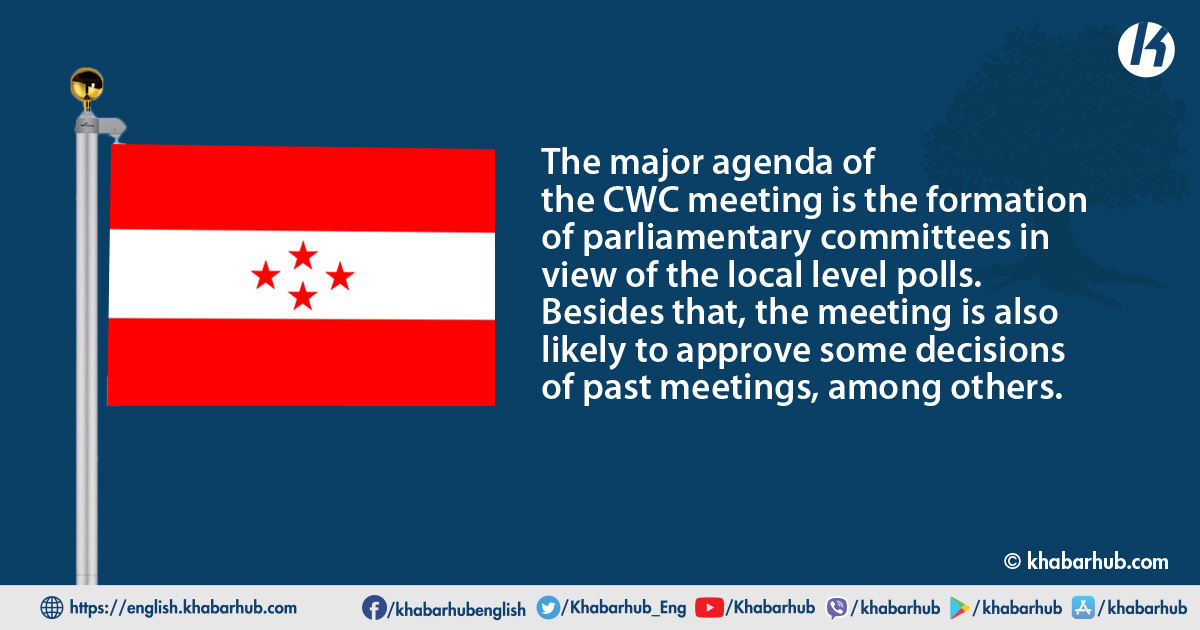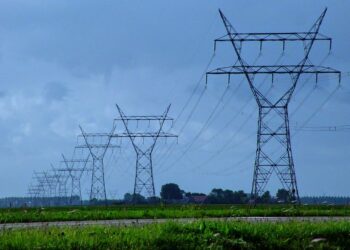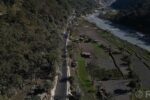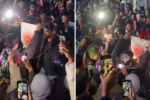KATHMANDU: The Nepali Congress (NC) seems to be caught in a quagmire. The local-level election is around the corner, and the country’s grand old party — the NC — has a Herculean task ahead — to finalize candidates to contest the local level polls slated for May 13.
The party is fashionably late to start the process to decide candidates for the second-ever local-level election taking place in the country after the implementation of the federal setup.
According to Article 33(1) of the NC statute, the party is to finalize the first-past-the-post candidates for any polls a month prior to the date of candidacy registration.
The Election Commission has allocated two days – April 24 and 25 — for the registration of candidates to contest in the May 13 local election.
In this context, the NC, in accordance with its statute, should make a ‘final decision’ on candidates not after March 24, which is Thursday.
Notwithstanding the provision in the statute, NC President Sher Bahadur Deuba, who is also the incumbent Prime Minister, has convened the party’s Central Working Committee (CWC) on Friday (March 25) — a day after the deadline — to constitute the central parliamentary committee that endorses local election candidates.
NC Spokesperson Dr. Prakash Saharan Mahat told Khabarhub, “The major agenda of the CWC meeting is to direct the formation of parliamentary committees across the country in view of the local level polls. Besides that, the meeting is also likely to approve some decisions of past meetings, among others.”
On the candidate selection process starting a day late by missing the statute-stipulated timeframe, the NC spokesperson attributed the delay to the party getting extensively involved with coalition partners for forging consensus over ratification of Millennium Challenge Corporation (MCC), which was finally endorsed on February 27.
“Initially, the party had spent extensive time for ratification of MCC, coordinating with coalition partners. After MCC was ratified, the party took some time to work out and launch its door-to-door election-targeted campaign (Ghar ghar jau, Congress lai jitau). These along with some technical problems caused the delay,” the spokesperson clarified.
The yet-to-be constituted NC parliamentary committees (at several levels) have an ultimate say on who the NC’s first-past-the-post candidates are going to be in the May 13 local level election.
According to the NC statute, the party should form parliamentary committees at four levels to select candidates. NC parliamentary panels are to be formed at the center, province, district and House of Representatives (HoR) constituencies.
NC General Secretary Bishwa Prakash Sharma has already directed all the levels concerned to form the parliamentary committees by March 29 — and such committees are currently being formed all across the country — in all 165 federal constituencies, 77 districts, seven provinces and at the center, in line with the party statute.
The process is expansive.
Stating that the local election candidates would be selected by parliamentary committees concerned from districts, provinces, HoR constituencies to the center, Dr. Mahat said, “The central leadership would not interfere with the process of finalizing candidates at various levels and let the process be democratic from the bottom up.”
It is to be noted that the central parliamentary committee will only pick mayors and deputy mayors of metropolitan cities in the local polls.
Dr. Mahat was hopeful that the candidate selection process would conclude by mid-April. “The election is on May 13. If we finalize candidates by April 13, we will have about a month for election publicity,” he said.
Another factor likely to affect the candidates’ selection of political parties, including the NC, is the possibility of electoral alliances with other political parties contesting the polls.
Differing views from the party factions regarding electoral alliance are coming from the NC while the party is finally driven ahead in the candidate selection process.
Nevertheless, the NC spokesperson said contrasting views on electoral coordination did not exist in the party leadership. “The CWC will take a unanimous decision on electoral coordination as deemed necessary.”
The statute also mandates the formation of parliamentary committees within six months after the completion of the party’s general convention.
“The departments/committees/various bodies to be formed at all levels of the party should be constituted within six months of the general convention,” NC statute has said.
In this respect, the party fulfills this condition as it has only been three months since Prime Minister Deuba is elected NC president for a second term. The NC concluded its 14th General Convention on December 15, 2021, in Kathmandu.
Scope of NC parliamentary committees
Meanwhile, NC central parliamentary committee will select Mayoral and Deputy Mayoral candidates at metropolitan cities only in the local level election. Similarly, the province parliamentary committee is responsible to select mayors of municipalities and sub-metropolitan cities; the district parliamentary committee reserves the right to select chiefs and deputy chiefs of rural municipalities, and the regional HoR parliamentary committee selects candidates for chairperson and members of the ward.
Respective parliamentary committees at their respective levels in coordination with invited members adopt a democratic approach to select candidates.
Composition of NC parliamentary committees
Center
The NC statute states that the president and general secretary of the Central Working Committee (CWC) will be the president and general secretary of the central parliamentary committee. Likewise, office bearers of the CWC are ex-officio members of the parliamentary committee at the center.
The president can nominate a maximum of 11 central members in the central parliamentary committee while paying attention to the principle of inclusion in doing so. There is also a statutory provision that the name proposed by the president should be approved by the CWC.
The NC statute stipulates a 26-member central parliamentary committee.
However, the party will form a 24-member central parliamentary committee from its March 25 meeting of the CWC.
This is because the NC is yet to pick a treasurer (the office of treasurer is vacant) and party president Deuba himself is the leader of the parliamentary party. In addition, Deuba will also be the ex-officio member of the central parliamentary committee.
Provinces
The NC follows a similar pattern of procedures to form similar parliamentary panels at the province-, district- and HoR constituencies.
The president and general secretary of the NC provincial working committee become the president and general secretary of the provincial parliamentary committee, which will also have office bearers of the provincial working committee as ex-officio members.
The provincial president of the NC will nominate a maximum of nine members from the provincial working committee, with the panel’s approval, to the provincial parliamentary committee.
Likewise, the leader of the provincial parliamentary party will be an ex-officio member of the provincial parliamentary committee.
NC statute stipulates that district working committee members, including district presidents, should be invited to the meeting of the provincial parliamentary committee while deciding the candidate in the districts.
At districts
The process repeats at districts. The President of the district working committee will nominate five members of the district committee to the district parliamentary committee, which will again have office bearers of district working committees as ex-officio members.
At HoR constituency
Similarly, HoR regional parliamentary committee is constituted by the president and office bearers of the HoR regional working committee, the president and secretary of the provincial parliamentary committee and HoR regional working committee members become ex-officio members.
The president of the HoR regional working committee will nominate five members from among its working committee members to the HoR regional parliamentary committee.
The parliamentary committee at the HoR constituency also will have first-past-the-post candidates of the HoR constituency concerned and elected lawmakers as ex-officio members.
Candidates’ selection process at the center
The central parliamentary committee, being formed by the CWC today (March 25), is statutorily regulated to distributing tickets to Mayor and Deputy Mayoral candidates only and that too, just for metropolises.
The process starts with the NC metropolitan working committee recommending, through consensus or majority vote, a maximum of three persons, including a woman, each for the post of Mayor and Deputy Mayor from among competent candidates.
Thus recommended names are forwarded to the provincial working committee concerned, which along with its advice again forwards the names to the NC CWC, which then will finally present the candidates to the central parliamentary committee.
The central parliamentary committee, either through consensus or voting, finally tables the names of candidates before the CWC for approval, another statutory provision.
NC statute also mandates inviting the president of the provincial working committee at the meeting of the central parliamentary committee while deciding the candidates in its scope.
This tedious process, finally, culminates with the central parliamentary committee, on behalf of the party, declaring Mayoral and Deputy Mayoral candidates of metropolises for the local election and candidacy registration.









Comment